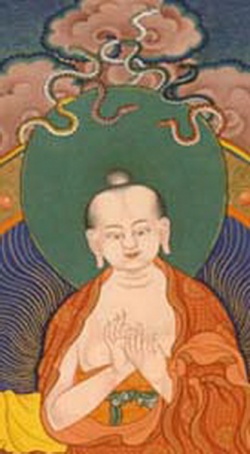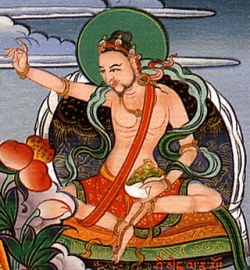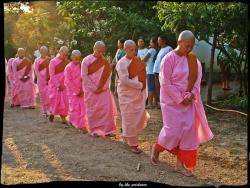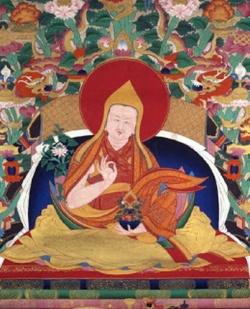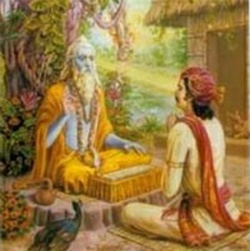Subhasita jaya Sutta
Victory Through What is Well Spoken
translated from the Pali by
Thanissaro Bhikkhu
On one occasion the Blessed One was staying near Savatthi at Jeta's Grove, Anathapindika's monastery. There he addressed the monks, "Monks!"
"Yes, lord," the monks responded.
The Blessed One said, "Once in the past the devas & asuras[1] were arrayed for battle. Then Vepacitti the asura-king said to Sakka the deva-king: 'Let there be victory through what is well spoken.'
"'Yes, Vepacitti, let there be victory through what is well spoken.'
"So the devas & asuras appointed a panel of judges, (thinking,] 'These will decide for us what is well spoken & poorly spoken.'
"Then Vepacitti the asura-king said to Sakka the deva-king, 'Say a verse, deva-king!'
"When this was said, Sakka the deva-king said to Vepacitti the asura-king, 'But you are the senior deity here, Vepacitti. You say a verse.'
"When this was said, Vepacitti recited this verse:
'Fools would flare up even more
if there were no constraints.
Thus an enlightened one
should restrain the fool
with a heavy stick.'
"When Vepacitti had said this verse, the asuras applauded but the devas were silent. So Vepacitti said to Sakka, 'Say a verse, deva-king!'
"When this was said, Sakka recited this verse:
'This, I think,
is the only constraint for a fool:
When, knowing the other's provoked,
you mindfully grow calm.'
"When Sakka had said this verse, the devas applauded but the asuras were silent. So Sakka said to Vepacitti, 'Say a verse, Vepacitti!'
"When this was said, Vepacitti recited this verse:
'Vasava,[2] I see a fault
in this very forbearance:
When the fool thinks,
"He's forbearing
out of fear of me,"
the idiot pursues you even more
as a cow, someone who runs away.'
"When Vepacitti had said this verse, the asuras applauded but the devas were silent. So Vepacitti said to Sakka, 'Say a verse, deva-king!'
"When this was said, Sakka recited this verse:
'It doesn't matter
whether he thinks,
"He's forbearing
out of fear of me."
One's own true good
is the foremost good.
Nothing better
than patience
is found.
Whoever, when strong,
is forbearing
to one who is weak:
that's the foremost patience.
The weak must constantly endure.
They call that strength
no strength at all:
whoever's strength
is the strength of a fool.
There's no reproach
for one who is strong,
guarding guarded by Dhamma.
You make things worse
when you flare up
at someone who's angry.
Whoever doesn't flare up
at someone who's angry
wins a battle
hard to win.
You live for the good of both
your own, the other's
when, knowing the other's provoked,
you mindfully grow calm.
When you work the cure of both
your own, the other's
those who think you a fool
know nothing of Dhamma.'
"When Sakka had said this verse, the devas applauded but the asuras were silent. Then the deva & asura panel of judges said, 'The verses said by Vepacitti the asura-king lie in the sphere of swords & weapons — thence arguments, quarrels, & strife. Whereas the verses said by Sakka the deva-king lies outside the sphere of swords & weapons — thence no arguments, no quarrels, no strife. The victory through what is well spoken goes to Sakka the deva-king.'
"And that, monks, is how the victory through what was well spoken went to Sakka the deva-king."
Notes
1. The devas & asuras were two groups of deities who fought for control of heaven (like the gods & titans in Greek mythology). The devas eventually won. The asuras, known for their fierce anger, later became classed as angry demons and, in some Buddhist cosmologies, are regarded as a class of being lower than human.
2. Vasava: "Powerful" is one of Sakka's epithets.
